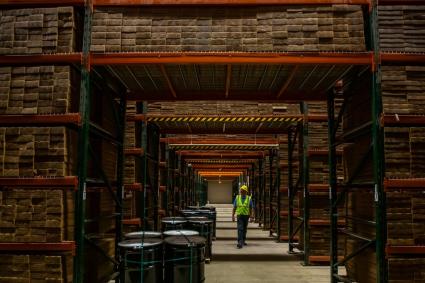From county boards to St. Paul, elected officials weigh in on mining near the BWCA
District 3A Rep. Rob Ecklund was one of several members of Minnesota’s Iron Range Delegation who recently signed a letter sent to President Joe Biden’s administration asking them to communicate and work with state legislators on issues that include copper-nickel mining.
Ecklund said during a WTIP interview Feb. 4 that the purpose of the letter was to emphasize the need for communication and transparency on land-use issues relevant to northeastern Minnesota, including a proposed copper-nickel mine near the edge of the Boundary Waters Canoe Area Wilderness. Members of Minnesota’s Senate Republican Caucus made note of the missive in a sharply-worded statement from Jan. 14.
The issue of mining near the BWCA and hope for influence at the federal level from state politicians is nothing new. In 2016, Ecklund and others sent their sentiments to Washington D.C. when there was concern that the federal government would shut down discussion of various mining proposals near the edge of the federally-protected wilderness on the Superior National Forest.
The hope for influence extends beyond the Capitol in St. Paul or the Iron Range Delegation. County boards across the region have also weighed in on the topic during recent years. Last week, for example, the St. Louis County Board of Commissioners passed on a 4-3 vote a resolution in support of copper-nickel mining. In 2016, then Cook County Commissioner Frank Moe proposed a resolution that was essentially a stance against copper-nickel mining on the edge of the BWCA.
Ecklund, who before being elected to the Minnesota House of Representatives severed as a county commissioner in Koochiching County, acknowledged during the recent WTIP interview that resolutions of this sort hold no official weight when it comes to enacting legislation at either the state or federal level. Furthermore, they can be divisive for communities to have their elected officials at the county level take a stance on controversial environmental issues such as copper-nickel mining on the edge of a federally-protected wilderness. This was certainly the case during the recent 4-3 vote among the St. Louis County commissioners, a vote that put the Duluth-based section of the board against the Iron Range and rural representatives on the board. A similar situation and split between a county board unfolded in 2016 in Cook County when Moe brought forward his resolution. State legislators, including Sen. Tom Bakk, weighing in on the resolution only further muddied the waters of the discussion.
There are other entities across the region that include elected officials who weigh in on topics like copper-nickel mining near the BWCA. The Northern Counties Land Use Coordinating Board is one such example. Often referenced by its incomplete acronym 'N-CLUB,' the group is a lobbying organization of sorts that Cook County and eight other counties, including all of District 3A, pay thousands of dollars in dues to be a part of. Cook County typically pays $2,000 in dues every other year to be a member of N-CLUB, according to Cook County Auditor Braidy Powers. Largely operating out of the public view and outside the scope of most media organizations in Minnesota, N-CLUB often weighs in on some of the most controversial environmental issues in the region, including the proposed Twin Metals project and more recently with the Line 3 oil pipeline across northern Minnesota.
Listen to the audio below to learn more about the recent letter the Iron Range Delegation sent to the Department of the Interior and the Department of Agriculture in Washington D. C., as well as the recent vote by the St. Louis County Board of Commissioners and more details about N-CLUB.
Tweet







